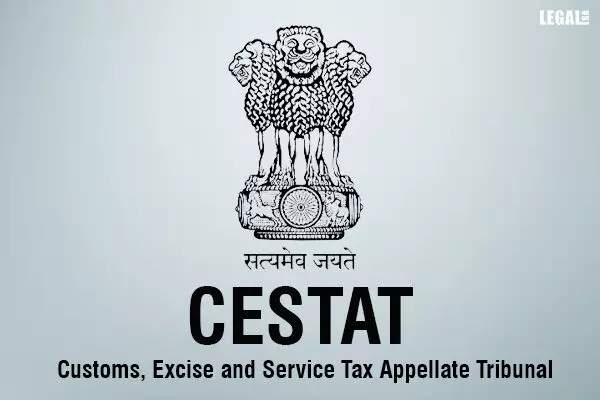- Home
- News
- Articles+
- Aerospace
- Agriculture
- Alternate Dispute Resolution
- Banking and Finance
- Bankruptcy
- Book Review
- Bribery & Corruption
- Commercial Litigation
- Competition Law
- Conference Reports
- Consumer Products
- Contract
- Corporate Governance
- Corporate Law
- Covid-19
- Cryptocurrency
- Cybersecurity
- Data Protection
- Defence
- Digital Economy
- E-commerce
- Employment Law
- Energy and Natural Resources
- Entertainment and Sports Law
- Environmental Law
- FDI
- Food and Beverage
- Health Care
- IBC Diaries
- Insurance Law
- Intellectual Property
- International Law
- Know the Law
- Labour Laws
- Litigation
- Litigation Funding
- Manufacturing
- Mergers & Acquisitions
- NFTs
- Privacy
- Private Equity
- Project Finance
- Real Estate
- Risk and Compliance
- Technology Media and Telecom
- Tributes
- Zoom In
- Take On Board
- In Focus
- Law & Policy and Regulation
- IP & Tech Era
- Viewpoint
- Arbitration & Mediation
- Tax
- Student Corner
- AI
- ESG
- Gaming
- Inclusion & Diversity
- Law Firms
- In-House
- Rankings
- E-Magazine
- Legal Era TV
- Events
- News
- Articles
- Aerospace
- Agriculture
- Alternate Dispute Resolution
- Banking and Finance
- Bankruptcy
- Book Review
- Bribery & Corruption
- Commercial Litigation
- Competition Law
- Conference Reports
- Consumer Products
- Contract
- Corporate Governance
- Corporate Law
- Covid-19
- Cryptocurrency
- Cybersecurity
- Data Protection
- Defence
- Digital Economy
- E-commerce
- Employment Law
- Energy and Natural Resources
- Entertainment and Sports Law
- Environmental Law
- FDI
- Food and Beverage
- Health Care
- IBC Diaries
- Insurance Law
- Intellectual Property
- International Law
- Know the Law
- Labour Laws
- Litigation
- Litigation Funding
- Manufacturing
- Mergers & Acquisitions
- NFTs
- Privacy
- Private Equity
- Project Finance
- Real Estate
- Risk and Compliance
- Technology Media and Telecom
- Tributes
- Zoom In
- Take On Board
- In Focus
- Law & Policy and Regulation
- IP & Tech Era
- Viewpoint
- Arbitration & Mediation
- Tax
- Student Corner
- AI
- ESG
- Gaming
- Inclusion & Diversity
- Law Firms
- In-House
- Rankings
- E-Magazine
- Legal Era TV
- Events
Vodafone Idea Granted Service Tax Exemption by CESTAT (Chennai) for Sponsorship of ICC Cricket World Cup and IPL

Vodafone Idea Granted Service Tax Exemption by CESTAT (Chennai) for Sponsorship of ICC Cricket World Cup and IPL
Vodafone Idea Limited has received a positive verdict from the Chennai bench of the Customs, Excise and Service Tax Appellate Tribunal. The tribunal ruled in favour of the appellant, stating that Vodafone Idea Limited is not liable to pay any service tax for its sponsorship of the ICC Cricket World Cup and the Indian Premier League (IPL).
During the examination of the appellant's tax returns from May 1, 2006, to March 31, 2010, it was discovered that the subsidiary of M/s. Vodafone India Limited had incurred expenses on sponsorship services without fulfilling the corresponding service tax obligations. Consequently, a show cause notice was issued by the Revenue authorities, which ultimately led to the imposition of service tax and penalties.
The two-member bench, comprising P. Dinesha (Judicial) and Vasa Seshagiri Rao (Technical), recognized that the key matter at hand was whether sponsoring the IPL and ICC Cricket World Cup should be considered equivalent to sponsoring sports events. The bench acknowledged that this question had already been resolved in favour of the appellant. Previous tribunal rulings consistently established that no service tax was required to be paid for sponsoring IPL and ICC cricket tournaments during the impugned period.
Additionally, the bench referred to the case of M/s. Hero Motorcorp Limited v. Commissioner of Service Tax, Delhi [LQ/CESTAT/2013/257], where it was established that the phrase 'in relation to' should be interpreted broadly. In that particular case, it was concluded that the sponsorship activities undertaken by the assessee were directly linked to sports events, and hence, exempt from service tax.
After careful consideration, the bench concluded that the imposition of the tax was not applicable since there was no provision of service involved, and the payments made were solely related to the sponsorship of the IPL Cricket tournament. Consequently, the provisions made by the appellant in their accounting books, following the Generally Accepted Accounting Principles (GAAP), for the allocation of expenditure on sponsorship services were deemed non-taxable.



